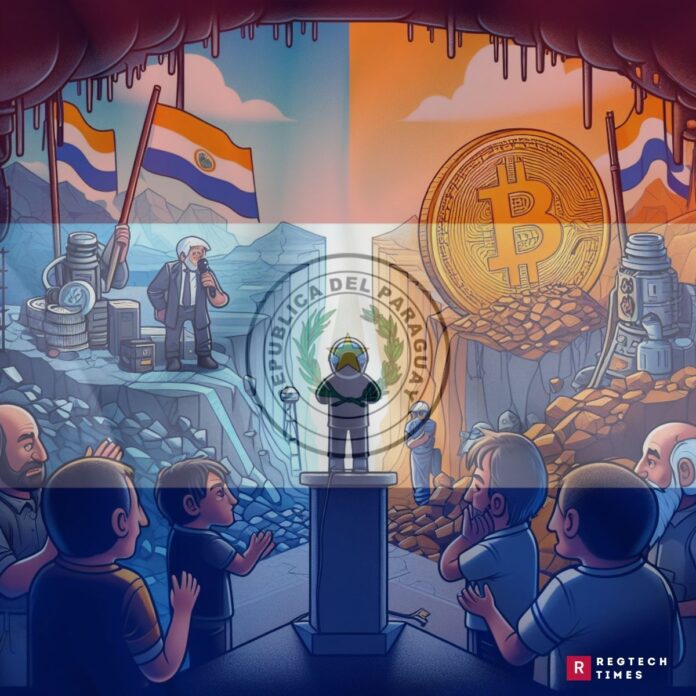The anticipated ban on Bitcoin mining by the Paraguayan government may have a significant negative economic impact, possibly costing the nation more than $200 million a year. The decision was made in response to worries that illicit Bitcoin mining operations will deplete the country’s energy supply and interfere with its electrical infrastructure. Stakeholders in the cryptocurrency sector and the larger Paraguayan economy are keeping a close eye on the situation while lawmakers discuss the ban.
The Economic Impact of the Ban
Jaran Mellerud, a co-founder of Hashlabs Mining, cautions that prohibiting Bitcoin mining could cause Paraguay to suffer severe financial losses. The nation might lose a significant source of income, as an estimated 500 megawatts of legal mining activities pay $0.05 per kilowatt-hour in running expenses. This loss is especially noteworthy for Paraguay because of its small population and GDP, which could have an impact on the country’s trade balance.
Current Regulatory Landscape
Currently, the Paraguayan Ministry of Industry and Commerce registration and authorization are prerequisites for Bitcoin mining companies functioning in the country. Major firms like Marathon Digital Holdings, who have made investments in mining operations close to the Itaipu hydroelectric power project, may see operational disruptions as a result of the proposed prohibition. Brazil has traditionally been the destination of the plant’s excess electricity, but the arrival of Bitcoin miners has raised worries about power outages and shortages.
Concerns about Illegal Mining
Lawmakers cite instances of illegal bitcoin mining operations that have connected to the nation’s electrical grid, disrupting service and costing the National Electricity Administration money. These covert activities put the stability of the energy infrastructure at risk in addition to putting undue demand on the power system. In order to address these problems, the proposed ban would temporarily stop all cryptocurrency mining operations until a framework for regulation has been put in place.
Impact on International Dynamics
There are wider ramifications for the global cryptocurrency community from the Paraguayan dispute. Mellerud believes that American miners based in the United States may relocate to Paraguay and Argentina in search of cheaper electricity and more stable regulations. On the other hand, the Kazakhstan government’s response to power outages brought on by cryptocurrency mining is reminiscent of the Paraguayan government’s war on illicit mining.
Challenges and Criticism
Despite its stated goal of stopping illicit mining, stakeholders and industry experts have criticized the planned prohibition. Opponents contend that the bill’s sweeping language may unintentionally make lawful cryptocurrency-related operations like staking and wallet storage illegal. In addition, concerns exist over the possible harm to innovation and economic expansion in the event that the prohibition cripples Paraguay’s bitcoin sector.
The controversy around the proposed ban on Bitcoin mining in Paraguay highlights how difficult it is to control advanced technologies in developing countries. The government wants to address issues with electricity shortages and illicit mining, but the ban’s possible negative economic effects make it difficult to strike a balance between innovation and regulation. The future of cryptocurrency mining in Paraguay is still up in the air as stakeholders continue to voice their opinions on the matter, especially in light of the impending Bitcoin halving event.


